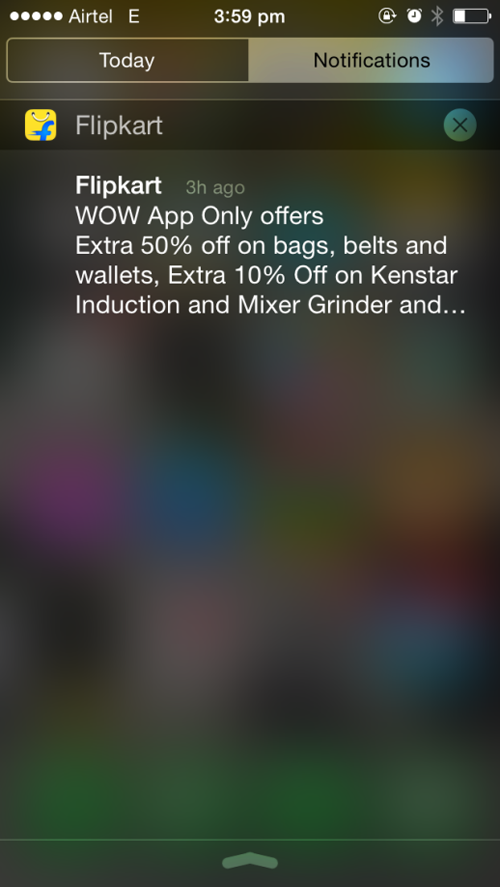5 Indian Ecommerce Trends to Watch

Ecommerce in India is here to stay and there are no two ways about it. And the push for online retail isn't coming just from the big players like Amazon and Flipkart; there's a steady stream of requests for online store integrations on websites.
There's also a proliferation of websites and portals that offer online coupons and deals and serve as aggregator sites for third-party sites (e.g. Freecharge.in and Baggout.com).
So what's on the horizon for the coming year when it comes to ecommerce in India?
1. Growing Customer Trust: Earning and maintaining a customer's trust in emerging markets is no easy feat. But if this past year has shown us anything, it's that trust in the ecommerce/e-tailing space is quickly becoming normative.
And perhaps no one is working harder than Amazon to establish this trust. Take a look at this ad that Amazon released during the Indian Premier League (IPL) cricket tournament.
These guys do everything right. The ad is timely, taps into a major pop-culture phenomenon and reinforces its message consistently. Talk about market penetration. And they're not too shabby with their features either. Over the past year, Amazon India has:
- Launched Pay with Amazon, a payment platform for sellers to outsource their financial transactions to. The idea is to get SMBs to seamlessly grow and integrate digital into their processes.
- Became the sole marketplace in India for X-Box and Microsoft-published game title purchases and subsequently rolled out Release Day Delivery.
And so we're looking at personalized products - especially on mobile devices - and contextual targeting from this very key player.
Without a doubt, ecommerce retailers are going to have to work very hard and innovate constantly to stand against Amazon's logistical strength and iron-clad processes. In the meantime, they're here and earning their fair share of trust amongst India's online shoppers.
2. Delivery Charges and Timing: Speaking of Amazon and intricate logistical Webs, e-retailers need to find ways to corner their markets and hold the attention of their customers. A short purchase cycle is old news. Expect sellers to switch to free delivery models, timely delivery models and greater investments in keeping their supply-chain machinery well-oiled, because that's exactly what the market demands. And online shoppers now expect faster and more economical shipping and delivery of their purchases anyway.
3. Social Integration: Retailers and marketers are leaving no stone un-turned as far as earning their media and engagement are concerned. The message is crystal-clear: have great content ready and get it to go viral as fast as possible. And back all of it up with share-ability across product offerings. In the meantime, integrate your on-ground/offline marketing with social; contests, deals, offers, influencers, brand-endorsers and everyone else in the social media gamut are going to be involved heavily in ensuring that your product sells. The Indian market isn't much different than the U.S. market in this regard.
Besides, social is always where customers will readily share their experiences, both positive and negative. And consumers trust other consumers most, when it comes to buying decisions.
Getting people to talk and review is always challenging, so expect to see new strategies and some very fresh and creative ideas in the coming year.
4. Mobile Purchasing: Have you downloaded the Flipkart app on your phone? The brand is a constantly growing presence on the Indian ecommerce scene and there's never a day that goes by if the app isn't sending out notifications and reminders - bear in mind, this is new for the Indian audience.

This is a strong market penetration strategy. Customers aren't ever allowed to forget that they can shop on Flipkart on their phones.
And they add to their ubiquity and popularity by running specials on in-app purchases all the time. If the point is to make mobile purchasing easy, enticing and fast, they've definitely gained a pretty strong edge on all accounts.
5. Regulation: Here's a word we haven't heard in the Indian online marketplace too often, but be assured it's making the rounds in circles that matter. And clearly, there's a glaring need for this area to be regulated, especially when consumers are left wondering why their Samsung Galaxy Tablets have been replaced by bars of soap.
Most marketers wouldn't expect anyone at the receiving end of these blunders to be anything but livid. So, in all the growing trends related to ecommerce, regulation in order to protect consumers is looking to be front and centre.
About the Author: Neha Bawa is the Head of Content Development at Techmagnate, a leading Digital Marketing agency based in Ashram, New Delhi. A full-suite digital agency with a 360-degree approach, Techmagnate provides specialized services for ecommerce development & design, SEO and Pay-Per-Click advertising.








